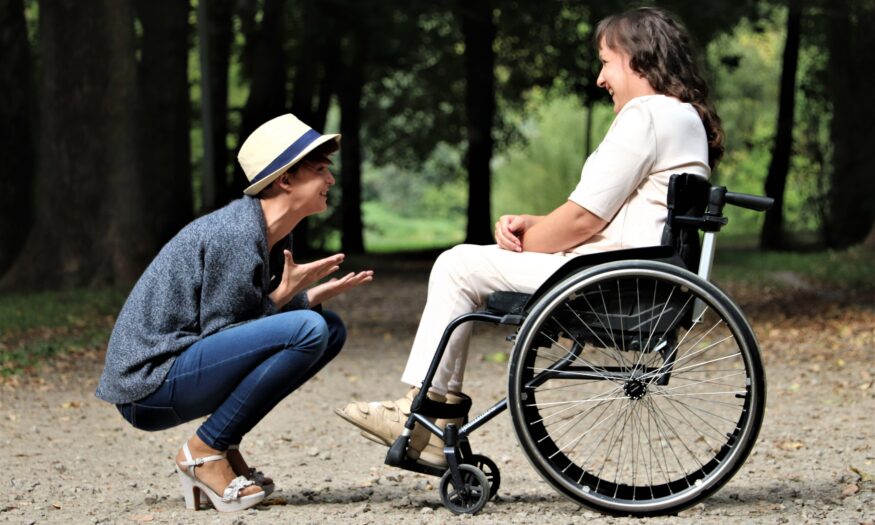Why STI Stigma and Slut Shaming are Dangerous
 Dainis Graveris/Unsplash
Dainis Graveris/Unsplash
-
Topics Include:
Sex
Sexual Health
Sexuality
Sexually Transmitted Infections (STIs)
The following text uses the word “pussy*” as defined by Pussypedia.
by Itzel Patricia Ortega Hernández
When something causes you fear and shame, you just want to avoid it. Knowing the risk of acquiring a sexually transmitted infection (STI) does not always generate preventative practices (safer sex). The fear of getting them, along with the stigma on those who have them, ends up affecting our physical health by preventing us from finding out we have them and from handling them well when we do.1,2,3
What are Stigmas?
All societies in the world have forms of controlling how their members act and interact. Unfortunately often, resistance to change and to things that are considered “too different” end up defining what is “good” and what is “bad.” This gives more power to the groups of people in society that already have more power than others.1,2,4
Stigmas are negative evaluations that a society in general gives to certain behaviors and groups of people.1,2,4,5,6 Certain modern stigmas provoke a ton of fear of being judged for the decisions people make about their bodies, their identities, and their preferences—especially for people with pussies* and gender nonconforming people. Stigmas create discrimination of people that are considered to be outside of the norm. They make society generally avoid certain things or people and that isolates us all.
People who study these thing divide stigmas into two types: “perceived stigma” and “self-stigma.” Perceived stigmas are the rejection of people that have characteristics considered negative by society. Self-stigmas are the fears of being discriminated against or rejected when you believe that you have stigmatized characteristics.6
Let’s Talk About Slut Shaming
Historically in the collective imagination, STIs were the fault of people with pussies*. This is a documented phenomenon called “the feminization of STIs.” It’s been around for centuries, evolving but always maintaining its gender-based discrimination and always creating inequality when it comes to access to health and power.2,3 From a beginning when people with pussies* in general were to blame, its current form focuses more on sex workers and people with pussies* who enjoy their sexuality freely.2,3,7,8
This represents a really awful double standard. What is a double standard? It’s when certain groups in society pressure—both openly and in a way that’s kinda disguised by morality—that other groups behave in a certain way that they consider “good” while they themselves in private and in public do the opposite or do the exact thing that they’re saying isn’t OK. For example: sex work or the simple desire for sex.2,10 In many cultures, it’s normal and even cool for machos to want and seek out a lot of sex. If a person with a pussy* wants or seeks out a lot of sex, they are a “slut.”
And while society demands that people with pussies* deny their sexuality, it simultaneously teaches us that our sexuality is our value. This leads to all sorts of problems including that we learn to seek affection through sex.10 That’s systematic violence and it hurts our emotional and physical health.
The Danger of Slut Shaming
Many studies have shown that the fear, guilt, and shame that come with STI-related stigma makes people less likely to get tested for STIs and, once they get one, less likely to seek treatment.1,5,6,8,9,11 Slut shaming is one of the leading causes of late diagnoses. For fear of healthcare providers shaming them for promiscuity (being sluts) many people with pussies* don’t go to the gynecologist until their symptoms are hard to ignore.2,6,8 If symptoms are getting worse then the condition probably is too. Stigmas hurt our health.
No More Slut Shaming, Just Take Care of your Pussy*
There’s no such thing as good pussies* and bad pussies*. There are sick pussies*, and neglected pussies* and there are happy and healthy pussies*. Learn about safer sex! Go to the gynecologist regularly, not just when it seems like something’s wrong. Also definitely go if it seems like something’s wrong. If any doctor makes you feel shame about your decisions, look for another doctor. There is no reason to tolerate that. (If you’re unable to find a doctor that doesn’t shame you, try as hard as you can not to feel too embarrassed to seek help when you need it. Whatever happened, you’re not a slut and never will be.)
It might be true that the more sexual partners you have, the more likely you are to contract an STI, but it’s not only tied to the act itself; it’s tied to the information you have and the precautions you take. It also depends on your freedom to take them.1,5,6,9 Freedom comes with responsibility. Safer sex is the best way to take care of and enjoy yourself at the same time. There are also people that are not free, as in the case of some sex workers, people in relationships with intimate violence, and in cases of rape.9,4,6 These contexts are already awful and nobody should add violence to them by lopping on more shame.
You are not alone, so don’t leave others alone. Solidarity is a way to mobilize and legitimize our struggles legally and politically in ways that can change the cultural fabric that creates them!3
Author’s Dedication: To Carmen Mares and to Rocío Hernández Mares because nothing has been in vain.
Sources
- Arellano GMC, Castro VMC. “El estigma en mujeres diagnosticadas con VPH, displasia y cáncer cervicouterino en Hermosillo, Sonora.” Estudios Sociales. 21(42). (2013): 259-278. <http://www.scielo.org.mx/pdf/estsoc/v21n42/v21n42a11.pdf>.
- Gayet, Cecilia. “Infecciones de transmisión sexual en México: una mirada desde la historia y el género.” Censida: Ciudad de México. Colección Ángulos del Sida. (2015): 370. <http://www.censida.salud.gob.mx/descargas/biblioteca/ITS_en_Mex_una_mirada.pdf>.
- Parker R, Aggleton P, Attawell K, Pulerwitz J, Brown L. “HIV/AIDS-related Stigma and Discrimination: A Conceptual Framework and an Agenda for Action. Population Council: New York.” Horizons Program. (2002): 22. <https://pdfs.semanticscholar.org/ef36/6210580303e5c23d9e5cb1197b74548c97c2.pdf>.
- Zucchi EM, Paiva VF, França JI. “Intervenções para Reduzir o Estigma da Aids no Brasil: Uma Revisão Crítica”. Temas em Psicologia. 21(3). (2013): 1067-1087. <https://www.redalyc.org/pdf/5137/513751772017.pdf>.
- Castro A, Farmer P. “Understanding and Addressing AIDS-Related Stigma: From Anthropological Theory to Clinical Practice in Haiti”. American Journal of Public Health. 95(1). (2005): 53-59. <https://ajph.aphapublications.org/doi/pdf/10.2105/AJPH.2003.028563>.
- Gutierrez ZL, Cantos SM; Luzuriaga SM; Venenaula OA, Montaño PG, Loor VG. “VPH y cáncer cervicouterino como un estigma social: un estudio desde el punto de vista psicosocial.” Dominio de la Ciencia. 4(4). (2018): 25-35 <http://dominiodelasciencias.com/ojs/index.php/es/article/view/820/pdf>.
- García J, Parker R. “From global discourse to local action: the makings of a sexual rights movement?” Horizontes Antropológicos. 26. (2006): 13-41. <http://socialsciences.scielo.org/pdf/s_ha/v3nse/scs_a03.pdf>.
- Muñoz-Laboy M, Vasquez AE, Parker R. “Globalización, violencia estructural y salud: Algunos comentarios desde la inequidad, estigma social y discriminación” Boletín electrónico del proyecto Sexualidades, Salud y Derechos Humanos en América Latina, nº 3, año 1.
- Torres Falcón, Marta. “Prostitución y violencia de génerol.” Dfensor Revista de derechos humanos. Comisión de derechos humanos del Distrito Federal: México (2011): 20-27. <https://cdhdf.org.mx/wp-content/uploads/2014/05/dfensor_01_2011.pdf>.
- Sierra, Juan Carlos, Rojas A, Ortega V, MO JD. “Evaluación de actitudes sexuales machistas en universitarios: primeros datos psicométricos de las versiones españolas de la Double Standard Scale (DSS) y de la Rape Supportive Attitude Scale (RSAS).” International Journal of Psychology and Psychological Therapy. 7. (2007): 41-60.<http://www.redalyc.org/articulo.oa?id=56070104>.
- Cunningham, Shayna. “Relationships Between Perceived STD-Related Stigma, STD-Related Shame and STD Screening Among a Household Sample of Adolescents.” Perspect Sex Reprod Health. 41(4). (2009): 225–230. <https://www.ncbi.nlm.nih.gov/pmc/articles/PMC4334654/>.
This article was previously published in Pussypedia and is reposted with permission.






